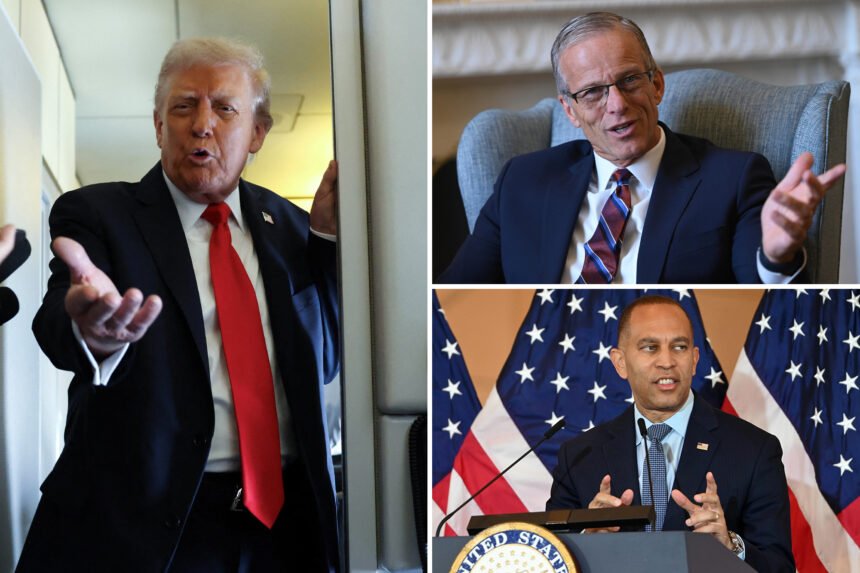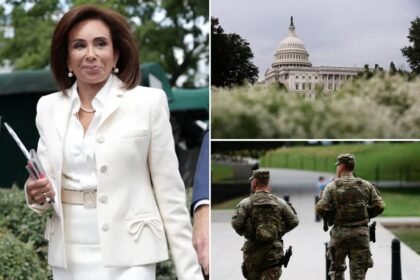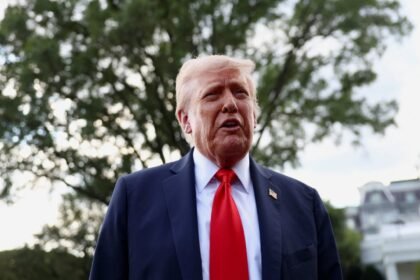House Prepares for Critical Vote on Government Funding Bill
As the clock ticks down to the end of the fiscal year, the U.S. House of Representatives is gearing up for a pivotal vote on a “clean” interim spending bill aimed at funding the government through November 27. This legislative maneuver is crucial to avert a government shutdown, which could have far-reaching implications for federal operations and services.
The Legislative Landscape
The House is expected to vote on the spending bill this Thursday, although some sources indicate that the timeline may slip to Friday. The urgency of the situation is underscored by the fact that the government is set to run out of funding at 11:59:59 p.m. ET on September 30. If the House passes the bill, it will then face a challenging path in the Senate, where a filibuster could complicate matters.
House Republicans are currently in discussions with various factions within their party, as they can afford to lose only two votes to pass the bill without Democratic support. House Minority Leader Hakeem Jeffries (D-N.Y.) has expressed confidence in his party’s ability to unite against the bill, emphasizing that this will be a focal point during the Democratic Caucus meeting on Thursday.
The Senate’s Role
Should the House approve the funding package, it will need to navigate two rounds of “cloture” in the Senate to break a filibuster, requiring a supermajority of 60 votes. Senate Majority Leader John Thune (R-S.D.) is keen to expedite the process, as a timely House approval would allow him to file cloture and set up a test vote as early as Saturday.
The procedural intricacies of the Senate are significant. If the House passes the bill on Thursday, Friday would serve as an “intervening day,” allowing for a procedural vote on Saturday. However, if the House delays the vote until Friday, the Senate would not be able to act until Sunday, complicating the timeline further.
Competing Priorities
Adding to the complexity, several Senate Republicans have expressed a desire to attend the funeral of conservative commentator Charlie Kirk in Arizona on Sunday. This has led to a preference for a Saturday vote, as it would allow GOP senators to fulfill both their legislative and personal commitments.
The urgency is further heightened by the upcoming Rosh Hashanah holiday, which begins at sundown on Monday and runs through Wednesday. Both the House and Senate are scheduled to be out during this period, making it imperative for lawmakers to act swiftly.
The Stakes Involved
The stakes are high for both parties. Republicans are keen to pass the bill without Democratic votes, aiming to shift any potential blame for a government shutdown onto the Democrats. Conversely, Democrats are leveraging their position, indicating that they may require concessions-such as the renewal of Obamacare subsidies-in exchange for their support.
The current political climate is reminiscent of past budgetary standoffs, where partisan divisions have led to government shutdowns. The last significant shutdown occurred in late 2018 and early 2019, lasting 35 days and resulting in widespread disruption. Lawmakers are acutely aware of the public backlash that can arise from such events, making the passage of this interim spending bill all the more critical.
Historical Context
Historically, government funding bills have often been contentious, reflecting broader ideological divides. The 1995-1996 government shutdown, for instance, was a result of a budget impasse between President Bill Clinton and the Republican-controlled Congress, leading to significant political fallout. In contrast, the 2013 shutdown was driven by disputes over the Affordable Care Act, showcasing how policy disagreements can escalate into broader budgetary crises.
In the current scenario, the interplay between party strategies and legislative procedures is crucial. The Republicans, holding a slim majority in the House and a minority in the Senate, are navigating a complex landscape where every vote counts. The Democrats, while in the minority, are leveraging their influence to extract concessions, highlighting the delicate balance of power in Congress.
Looking Ahead
As the deadline approaches, the political drama is likely to intensify. Both parties are preparing for a high-stakes showdown, with the potential for last-minute negotiations and compromises. The outcome of this vote will not only determine the immediate funding of the government but also set the tone for future legislative battles.
In conclusion, the House’s impending vote on the interim spending bill is a critical moment in U.S. politics, with implications that extend beyond mere budgetary concerns. As lawmakers grapple with procedural hurdles and partisan divisions, the need for cooperation and compromise has never been more apparent. The coming days will be pivotal in shaping the future of government funding and the broader political landscape.











